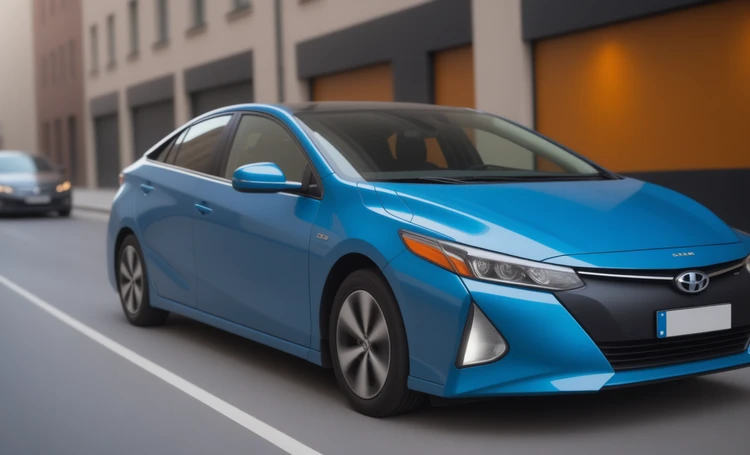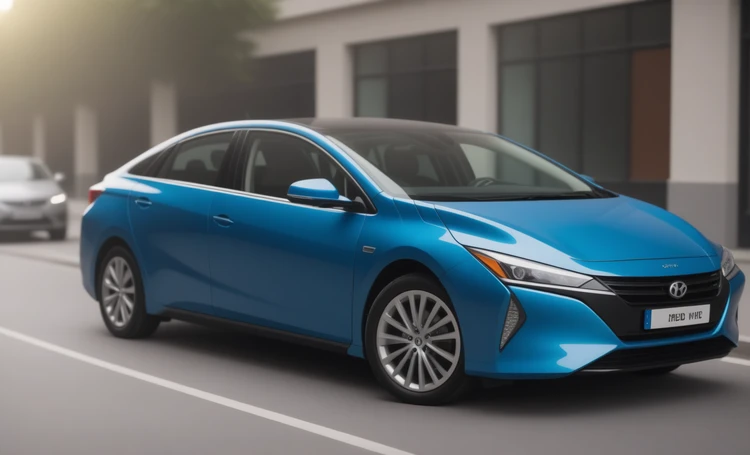🚘 Hybrid cars: the best choice for the city?
In the modern world, city driving is becoming increasingly demanding on vehicle efficiency. Hybrid cars, which combine internal combustion engines and electric motors, represent an attractive compromise between traditional gasoline cars and all-electric vehicles. Every year, manufacturers update their model range, making hybrid cars even more suitable for metropolitan conditions. Check out the best hybrids for the city here to assess their relevance to your urban lifestyle.
🌿 Fuel economy and ecology
The impact of hybrid cars on the city budget and the environment
Hybrid vehicles are known for their ability to reduce fuel costs, especially in city driving where frequent stop-and-go traffic allows the electric motor to effectively complement the gasoline engine. This not only reduces the load on the internal combustion engine, but also significantly reduces the amount of emissions, which has a beneficial effect on the ecology of cities. According to research, the average hybrid car consumes 30-50% less fuel than its gasoline counterpart. This means that owning a hybrid can significantly reduce your annual gas costs.
- Advantages of hybrid cars in the city:
- Lower fuel consumption due to the effective combination of electric motor and internal combustion engine.
- Reducing emissions of carbon dioxide and other harmful substances.
- Benefits and subsidies from the state in some regions.
⚙️ Technological superiority
Innovations in Hybrid Vehicles
Hybrid car technology does not stand still. Manufacturers such as Toyota and Honda are constantly working to improve batteries, increase driving range on a single electric charge, and improve energy management systems. The introduction of intelligent driver assistance systems and automated functions makes hybrids not only more economical, but also safer for city driving.
- Technological innovations:
- Improved lithium-ion and nickel-metal hydride batteries.
- Regenerative braking to return energy to the battery.
- Automatic control systems for energy consumption.
🏙️ Hybrids in urban infrastructure
Adapting cities for hybrid vehicles
Cities around the world are adapting their infrastructure to support hybrid and electric vehicles. The creation of additional charging stations, special parking spaces and benefits for travel to central areas for environmentally friendly cars is contributing to the growing popularity of hybrids among city residents.
- Changes in urban infrastructure:
- Installation of charging stations in public places and residential complexes.
- Providing benefits and preferences for owners of hybrids.
- Development of carsharing using hybrid cars.
Integration with modern technologies
Hybrid cars are actively integrated with modern technologies, providing drivers with access to the latest advances in information systems. This means that in addition to saving fuel, drivers receive maximum comfort and convenience in driving their car.
- Technologies in hybrid cars:
- Wireless software update systems (Over-The-Air updates).
- Integrated multimedia systems with support for Apple CarPlay and Android Auto.
- Advanced capabilities for connecting smartphones and car diagnostics.
📊 Cost of Ownership Analysis
Economic benefits of hybrid cars in urban environments
In addition to direct savings on fuel, it is worth considering the overall costs of owning a car. Hybrid cars often offer lower maintenance costs due to less engine wear and require less oil and brake pad changes. This makes them very attractive to those who are looking for not only an environmentally friendly, but also an economical car for daily driving.
- Cost comparison:
- The cost of fuel in comparison with conventional gasoline cars.
- Maintenance and repair costs.
- Insurance premiums and tax benefits.
| Expense item | Hybrid cars (annual costs, USD) | Traditional cars (annual costs, USD) |
|---|---|---|
| Fuel | $600 – $800 | $1,200 – $1,500 |
| Service | $300 – $500 | $500 – $700 |
| Insurance | $1,000 – $1,200 | $900 – $1,100 |
| Tax benefits | May vary* | Minimal or none |
🚦 Benefits for city driving
How hybrid cars improve city traffic
For densely populated urban areas, where traffic jams and frequent stops are the norm, hybrid vehicles provide the optimal solution. Their ability to switch to the electric motor at low speeds reduces fuel consumption and emissions, making them ideal for everyday urban use.
- Advantages of hybrid cars in the city:
- Quiet and silent electric operation.
- Reducing gas pollution and noise in the city.
- Increased efficiency in stop-and-go situations.
Impact on urban infrastructure
Hybrid cars also actively influence the development of urban infrastructure, stimulating the creation of new charging stations and the renewal of urban transport. This leads to a reduction in overall pollution levels and an increase in the quality of life of city residents.
- Infrastructure changes:
- The emergence of charging stations for electric and hybrid cars.
- Modernizing public transport to reduce emissions.
- Development of car sharing services using hybrid cars.
Quote block
Hybrid vehicles are not only a fuel-saving technology, but also an important element in a sustainable urban development strategy. They contribute to creating cleaner and quieter urban spaces.
🌿 Contribution to the environment
Reducing your ecological footprint
Hybrid cars play a significant role in reducing the environmental footprint of cities as they reduce emissions of carbon dioxide and other harmful substances. This makes them the preferred choice for conscious consumers interested in reducing their environmental impact.
- Environmental benefits:
- Reduced CO2 emissions.
- Reducing fossil fuel consumption.
- Raising public awareness of the importance of environmentally friendly transport.
🏙️ Conclusions and results
Hybrid cars as part of the urban landscape
Hybrid cars are undoubtedly becoming an integral part of the urban landscape. Their ability to save fuel and reduce their environmental footprint makes them ideal for city driving. Their role will only increase in the future as more cities strive to reduce pollution and switch to sustainable modes of transport.
- Final thoughts:
- Hybrid cars as a contribution to sustainable urban development.
- Their role in the formation of environmentally friendly and economically profitable transport.
- Prospects for the development of hybrid technologies and their impact on the future of urban transport.


